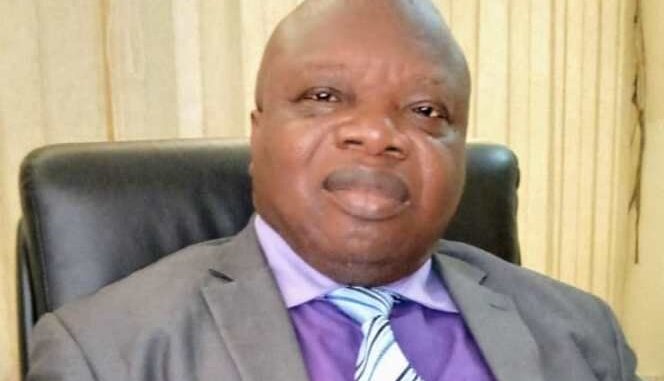
_*STATEMENT DELIVERED BY THE DEPUTY COMMISSIONER ANTI-CORRUPTION COMMISSION SIERRA LEONE, AUGUSTINE FODAY NGOBIE AT THE CONFERENCE OF THE STATES PARTIES TO THE UNITED NATIONS CONVENTION AGAINST CORRUPTION (UNCAC) IN VIENNA HELD FROM JUNE 10TH TO 14TH, 2024, AND THE IMPLEMENTATION REVIEW GROUP (IRG) FIFTEENTH SESSION*_
Thank you Mr. Chair for this opportunity to address this distinguished body, on Sierra Leone’s continued resolve and determination in the implementation of the provisions in the Convention relating to; Asset Recovery, Prevention, and Technical Assistance and wish to enumerate the level of achievements so far recorded by Sierra Leone, as there is the need for our respective countries to do more in ensuring full compliance to the recommendations of the Convention.
Our President, ladies and gentlemen, I am pleased to state that Sierra Leone signed the UN Convention on the 9th December 2003 and ratified same on October 30, 2004. Sierra Leone has made tremendous efforts in the domestication of the UNCAC thereby strengthening and consolidating the fight in the country with unprecedented results and outcomes.
Let me also convey the warmest greetings from the President, Government, and people of Sierra Leone, the leadership and staff of the Anti-Corruption Commission Sierra Leone (ACC-SL), and all our esteemed partners in the accountability space.
Mr. President our pragmatic approach to the fight against corruption, continues to align with the provisions in the UNCAC, the African Union Convention on Preventing and Combating Corruption (AUCPCC), the ECOWAS Protocol on Corruption, etc.
This year’s Conference we all know, focuses on the implementation of Chapter V (Asset Recovery) which is fundamental to the Convention, requiring State Parties to afford each other the widest measure of cooperation and assistance.
I would quickly emphasize that recovery and restitution are at the heart of Sierra Leone’s progressive fight against corruption.
Permit me to underscore the efforts invested and the progress made so far by Sierra Leone, in the area of recovery of stolen wealth/assets consistent with _*Articles 51, 53–57, and 59, Chapter V (Asset Recovery) of the UNCAC. The Anti-Corruption Act of 2008 (as amended in 2019)*_ now has the following provisions;
Judges now order mandatory 100% Restitution to the State of any amount adjudged to have been misappropriated in addition to an alternate fine of not less than _*Le:50,000 ($:2,380) or five years jail per count of corruption, or both.*_
Before now, restitution was not mandatory.
A Non-Prosecution Policy that provides direction on how the Non-Prosecution Asset Recovery strategy is implemented.
The ACC now has powers to apply a Non-Prosecution Asset Recovery strategy to compel persons it believes have committed acts of corruption to pay back in full the amount deemed to have been misappropriated plus not less than 10% interest charged on same. This includes over _*Le:47,000,000 (over $:2.241m) since 2018) including Le:8,837,814 from 2023 to May 2024, ($:421,460) landed property, office equipment (laptop computers), vehicles, motorbikes, etc. This includes a whooping Le: 8,400,000 ($:400,000) recovered from two (2) Government officials early this year (24th January, 2024).*_
These two individuals have been barred from holding public office for a minimum of three years as provided by the law.
(Presentation of Recovered stolen wealth (Le: 8.4 million) to the media, civil society, and the public by the ACC-SL at the Conference Room of the Integrity House Freetown Sierra Leone)
Chapter II of the UNCAC; Preventive Anti-Corruption Policies
Mr. Chair, let me also update you and the August assembly on the efforts made in the area of _*‘’Preventive Anti-Corruption Policies’’*_ as provided for in Chapter II of the UNCAC. The UNCAC encourages States to develop and implement comprehensive anti-corruption policies, establish independent anti-corruption bodies, adopt codes of conduct for public officials and institutions, institute merit-based hiring, transparent financial management, transparent and competitive public procurement systems, public reporting of corruption, and unhindered access to information, active participation of civil society and non-governmental/community-based organizations in anti-corruption efforts among others.
A sentencing guideline for Judges at the Special Anti-Corruption Division of the High Court of Sierra Leone has been developed to prevent the unfair application of justice, which by extension could be interpreted as a corrupt act.
The 5th Generation of the National Anti-Corruption Strategy (NACS) 2024-2028 has been crafted through a nationwide and all-sector inclusive consultative process by a panel of well-experienced and qualified local experts. The document shall be Sierra Leone’s roadmap in the fight against corruption for the next five years.
A Non-Prosecution Policy which gives Direction and Guide to ACC Prosecutors on how and why to proceed with either an indictment in Court or the Non-Prosecution Asset Recovery strategy is in force and vigorously applied.
Through the Commission’s Corruption Prevention Department which conducts thematic and comprehensive reviews of systems and processes of MDAs, has recommended best practices to be rolled out to 21 Ministries, Departments and Agencies (MDAs), monitored their compliance to the recommendations, and has Certified and Publicly acknowledged compliant MDAs, whilst sanctions through the imposition of fines and other administrative punishments have been meted out to the leaderships of the Non-compliant MDAs.
The Policy, Ethics, and Integrity Unit in the Corruption Prevention Department of the Commission has organized and held capacity-building and training programs in Ethics and Integrity issues for MDAs.
Integrity Pledges and Pacts are being signed by contractors/service providers and Top Executives of MDAs in a bid to discharge their responsibilities transparently and with high integrity.
Additionally, the forging of good relationships through the signing of a Memorandum of Understanding (MoU) by the ACC, with independent regulatory institutions, like the Audit Service Sierra Leone, the National Public Procurement Authority (NPPA), and the Independent Procurement Review Panel (IPRP) with extensive powers to regulate and sanitize the procurement space and address procurement-related complaints and irregularities, has given ACC a wide range of powers to investigate procurement corruption-related issues, including a new offence (Procurement not in Public Interest), introduced with the amendment of the AC Act of 2008 in 2019.
The Commission can now work with the NPPA to cancel and put on hold the implementation of any procurement that it has reason to believe is not in the public/nation’s interest. The key element is the existence of a reasonable ground for suspicious corruption in the contract.
Remarkably also, Sierra Leone through the Commission has ensured a compulsory _*100% online asset disclosure and management for all public officers in Grade 7 and above and or in decision-making and fiduciary positions. Out of 10,376 declarants expected in the 2022 declaration year which went up to 2023 due to extensions as a result of technical challenges with the online portal, 9,866 declarations were received representing 95%, and 510 representing 5% were defaulters.*_
However, when the Commission invoked sub-section 4 of Section 119 (administrative sanctions for defaulters) over 400 public officers (the defaulters) declared in 2023. Some who failed to, faced the the required Administrative Sanctions.
Regarding collaboration and partnerships with civil society bodies and other stakeholders in the fight against corruption as they are critical, the Commission has forged formal partnerships and signed Memoranda of Understanding with 104 partners. These partners continue to support the ACC in its advocacy and outreach sensitization activities.
_*Chapter III:*_
_*Criminalization and Law Enforcement*_
Let me also report that the ACC has continued to revolutionize the fight against corruption in addressing the requirements of Chapters III above and I of the UNCAC.
In addition to the progressive Anti-Corruption Regulatory framework that we have, (the Anti-Corruption Act of 2000), which has gone through two amendments in 2008 and 2019, we also have the Financial Intelligence Agency (FIA), established with a broader jurisdiction over financial fraud, money laundering, terrorist financing, etc, and the ACC having a formal collaborative relationship (MoU) with it (FIA), with a strong legal machinery in these areas as well- _*“Anti-Money Laundering and Combatting Financing of Terrorism Act of 2012 as amended in 2019, the National Payment Systems Act of 2022, etc.’’*_
Sierra Leone’s Anti-Corruption law also criminalises attempts to obstruct our work/justice as such could trigger offences like; _*“Section 127 Obstruction of justice, Misleading the Commission’’,*_ etc. Further measures have been put in place to protect Witnesses and Whistleblowers, and an Informant/Whistleblower Reward Scheme.
_*Chapter IV:*_
_*International Cooperation*_
The provisions of this Chapter are critical to the success of our collective ongoing efforts to tackle the scourge of corruption. _*Part VII, Sections 103 to 118*_ of the Anti-Corruption Act of 2008 as amended, gives clear instruction on the critical concept of _*‘’Mutual Legal Assistance’’*_ in the fight against corruption. The Act prohibits any interference with _*‘’Mutual Assistance Orders’ and facilitates the extradition of individuals accused of corruption-related offenses”*_
*Chapter VI:*
_*Technical Assistance and Information Exchange*_
Worthy of note is that this chapter encourages the provision of technical assistance to developing countries and economies in transition, in training programs and research on anti-corruption measures, and the exchange of relevant information and best practices among state parties in the fight against corruption.
I believe, that the collective implementation of Chapters IV (International Cooperation) and VI Technical Assistance and Information Exchange of the UNCAC remains fundamental to the global fight against corruption as their relevance cannot be overemphasized. Support in these areas is truly needed, and over the years much has not been achieved especially for developing economies like Sierra Leone.
Challenges and Areas for Improvement
_*Economic and Resource Constraints:*_
Despite progress, the ACC-SL and other anti-corruption bodies often face economic and resource constraints, including access to modern techniques/tools/equipment needed for sophisticated and forensic investigations, thereby limiting their capacity to implement their mandates fully.
_*Judicial Independence:*_
While the ACC-SL has had significant successes in prosecutions and enjoyed a better-quality relationship with the Judiciary, leading to the establishment of a Special Anti-Corruption Division within the High Court of Sierra Leone and several other policy reforms, the Judiciary’s practical independence and efficiency in handling corruption related matters with speed, accuracy, and fairness, remain critical to the crusade. Ensuring a fully independent and well-resourced Judiciary is critical for sustaining anti-corruption efforts.
Political Will: Sustained Political Will is essential for the long-term success of anti-corruption measures.
In Sierra Leone, we have in recent years experienced unparalleled and unmatched Presidential Will, embodied by the support the Government of President Bio has provided to the ACC, with the 100% funding of the construction of an ultra-modern, purpose-built multi-million dollar edifice for the Commission; budgetary allocations, and a free hand to do the job.
This Will make anti-corruption bodies to operate without political interference and so record unimaginable gains in the fight against corruption. Political will in this context is not only the Will of the Government in power, but equally that of all opposition parties. Therefore, as an institution, we desire 100% political will in this fight as this remains critical.
_*Comprehensive Legal Reforms:*_
While significant legislative measures have been taken, there is a need for continuous legal reforms to address emerging challenges and align with international best practices. It is also an ongoing process in Sierra Leone.
I thank you all for your attention.
©️ *Public Relations Unit, ACC*

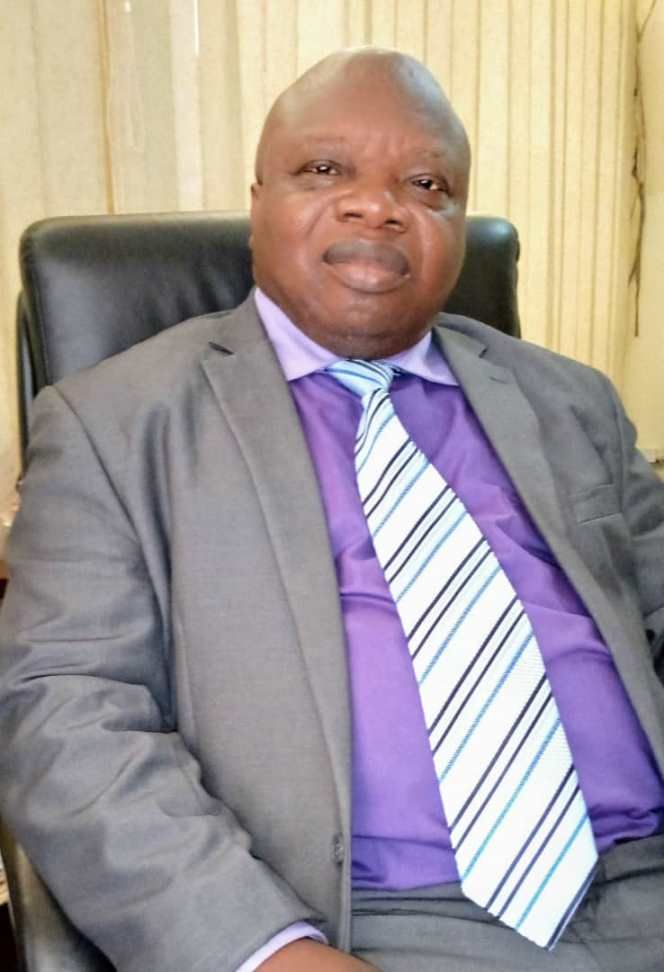
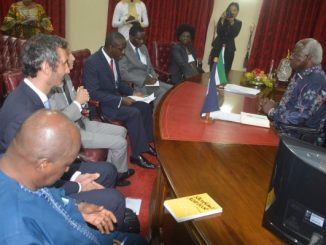
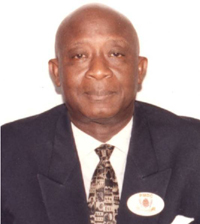
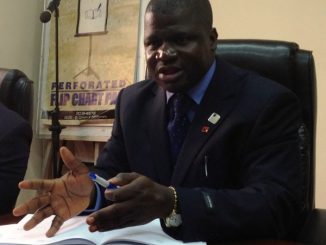
Leave a Reply